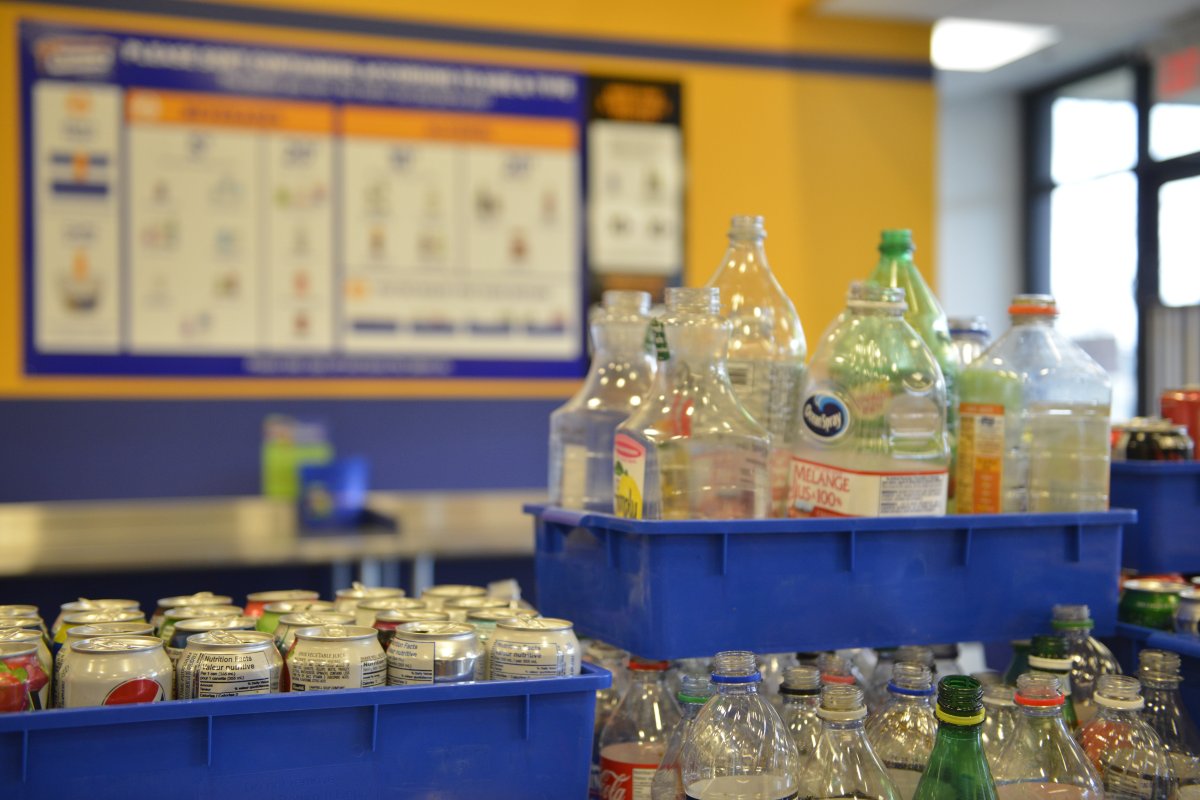When Tupperware launched in the 1940s, it was like opening the Pandora’s Box of plastics. Convenient, simple, and durable, the product was a launching point for what has turned into an era of plastics overload.

Today we’re producing nearly 300 million tons of plastic every year, Plastic Oceans International notes.
At the same time, more than eight-million tons of plastic straws, bags, cutlery and other products are dumped in the ocean every year.
So what will it take to reduce the footprint, especially in terms of the plastic water bottles we use? In conjunction with Encorp Pacific and Allen Langdon, President and CEO, we take a look.
Corporate consideration
At the World Economic Forum in Davos, Switzerland earlier this year, it was announced that a handful of major brands and retailers, from Coca-Cola & PepsiCo to Walmart, are aiming to use 100 per cent reusable, recyclable, or compostable materials by 2025.
Considering the dozen or so companies involved represent more than six million tons of plastic packaging per year, that’s a sizeable reduction.
“If left unchecked, plastic waste will slowly choke our oceans and waterways,” James Quincey, Coca-Cola’s CEO, wrote in a blog post.
“We’re using up our earth as if there’s another one on the shelf just waiting to be opened.”
Recycled and returned
Another solution can be found in B.C.’s Encorp Pacific, which has helped the province achieve one of the highest recycling rates for beverage containers in North America.
The not-for-profit stewardship corporation manages the recycling of ready-to-drink beverage containers in the province, and has been running its popular Return-It program for more than 25 years.
The program operates an approved stewardship plan under the provincial recycling regulation which encourages people to return their beverage containers through a network of depots.
Return-It then facilitates the recycling process so that the containers can be turned back into raw materials that can be used to create new products such as new plastic bottles.
“There are two things that make the system so effective. Certainly we’ve got a great collection system and we make it accessible for residents, but then the beverage producers have also done their part,” president and CEO of Return-It, Allen Langdon tells Global News.
“They’ve been forward-thinking in terms of standardizing their packaging. If you have a drink bottle, for example, it doesn’t matter whether it’s from Coke, or Pepsi, or another company: it’s pretty much a standard bottle made of the same material.”
Having that standard means Return-It can easily recycle the plastic and recover the raw material that can be used to manufacture new product.
Another important factor of success is that all of Encorp’s recycling is done in the province, and none of the collected plastic is shipped overseas—a huge concern given the amount of debris making its way to the oceans.
According to Langdon, the program has led to an estimated 70 per cent plastic bottle recovery rate, province-wide, a number the company hopes to increase to 75 per cent by the year 2022.
In order to do that, they need to target consumers who are more likely to toss out containers. Company research suggests roughly 40 million containers were discarded by people while they were “on the go” last year.
The Return-It Express program allows people to drop off used beverage containers without having to sort the containers. The refund is debited straight to the consumer’s online account.
“With programs like Return-It Express we are looking at making things as convenient as possible for consumers,” Langdon says. “It’s about reducing any barrier for them wanting to recycle, and we think by having it essentially be a drop-and-go system makes it much more convenient and hopefully removes one of those last barriers.”
Plastic bottles are made from polyethylene terephthalate (PET), a versatile type of plastic that can be made and re-made into many different things.
When you bring your plastic bottles to a recycling facility like Return-It, it enters a “closed-loop” system, in which the old bottles are made into brand new plastic bottles. It’s an ideal recycling process because the product can be recycled over and over again.
There are quite a few steps in between a person dropping off a beverage container at a Return-It Depot and the plastic itself being recycled into a new product.
Looking to reduce your plastic pollution footprint? Find a Return-It Depot near you, here.


